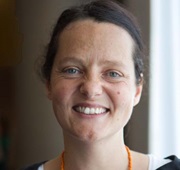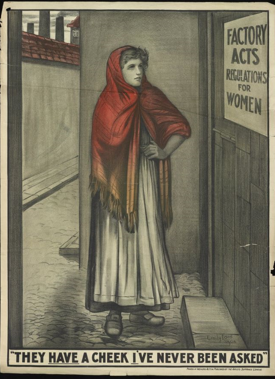
Oxfam’s Emily Brown on today’s 100th anniversary of women’s suffrage in the UK
Today marks 100 years since some women in the UK first gained the right to vote. The People’s Representation Act of February 6th 1918 represents both a historic milestone in the post-war opening of public and political spaces to women, but also a move designed to keep a meaningful transfer of power to women to a minimum for the time being. It took another 10 years for all women to get the vote, rather than the first, privileged minority of property-owning 30+ year olds.
One hundred years on, 32% of UK Parliamentarians and 33% of local councillors are women. Respectable progress of sorts, no?
Well no…not really. As the Centenary Action Group, a coalition of over 70 women’s organisations, political parties, individuals and action groups campaigning under the #StillMarching banner observe, much more needs to be done to overcome the deep physical, cultural and institutional barriers required to deliver real change for women in the UK and worldwide. The Fawcett Society’s recent Local Government research found that just 17% of UK local councillors are led by women, 40% of women councillors have experienced sexism from within their own party, and half of Black, Asian and Minority Ethnic women councillors have experienced racism and sexism. Just 4% of local councils in England today have a maternity, paternity or parental leave policy for councillors.
“There is great emphasis on women coming forward to stand but what we won’t stand for is the adverse political system and culture they are walking into. Systems and culture have to change….Our system of politics is failing to be relevant to women’s lives, actively putting them off.” Sam Smethers, Chief Executive, Fawcett Society

So why is #StillMarching relevant to us FP2P wonks? It matters because, as ‘Sausagegate’ here on this blog only a few weeks ago illustrated so starkly….the continued dominance of public spaces and debate – in the UK and globally – by male voices and faces means that the personal-is-political, social, economic and environmental issues that matter to women have a much harder chance of being heard – let alone making it into the cut when decisions about money are being made. And, when women by nature of their race, class, age or sexuality for example are not part of the groups in society with the most power, they, like young, black, minority ethnic and working class men, are even less likely to make it into the decision-making places and spaces that matter.
‘You cannot easily fit women into a structure that is already coded as male; you have to change the structure. That means thinking about power differently. It means thinking collaboratively, about the power of followers as well as leaders.’ Mary Beard, Women and Power, a Manifesto
As long as the power and institutions across our development sector are ‘man-shaped’, the diversity of women’s voices will remain largely invisible. This invisibility keeps poor women poor; by prioritising, for example, large-scale physical infrastructure projects over investments in household water, energy systems and care services that would reduce and redistribute the unpaid care and domestic work of so many millions of women; by relying on the views of a sole male community leader to establish ‘whose vulnerability’ qualifies them for humanitarian food aid; and through shamefully large numbers of multi-million dollar proposals promising that yet more citizens “especially women and other marginalised groups…..” will be empowered and transformed without a single penny being budgeted for gendered analysis, expertise or local partnerships.
“There are 22 in our council. We women are only 8… the men are noisy but not effective. If men are not accounting, we will. We’re showing a different way of doing things.” Local Councillor, Kitgum, Northern Uganda

Women’s rights activists worldwide and their allies, like Oxfam, have long held that not only is men’s unquestionable power to shape our world alone not right, but that…let’s be honest, it ultimately results in poorer quality, badly-informed development practice and outcomes.
As Hans Rosling put it: “Poor women are smart…they have to be, otherwise they’re dead.” We ignore their experiences and their skills at our peril….. and to the detriment of more thoughtful, inclusive, and ultimately more impactful development work.
A paper published by Oxfam next month seeks to make a powerful development case for more and better investments in accompaniment to women activists and leaders, and to women’s rights organisations and movements worldwide. Because our long programme investments and experience tell us that when women activists and leaders are supported to work together – with their male allies and partners – to get behind policies and laws that promote better lives for all, we see more money, and more and better public services.
The numerous examples we draw on – from Oxfam’s own, and so many others’ thinking, practice, research and learning – offer inspiring and convincing alternatives to oppressive forms of power and leadership. These, more transformative leadership approaches are not only possible; they are already happening:
- In Nepal, for example, 42% of nearly 2,000 women members of Oxfam’s Raising Her Voice ‘community discussion classes’ reported feeling able to influence the village and district development councils to allocate financial support for the promotion of women’s interests – compared to just 2% of respondents from comparator villages.
- Analysis of 181 peace agreements signed between 1989 and 2011 found that…‘peace processes that included women as witnesses, signatories, mediators, and/or negotiators demonstrated a 20% increase in the probability of an agreement lasting at least two years. This increases over time, with a 35% increase in the probability of a peace agreement lasting 15 years.’
- And this from a 2016 evaluation of Oxfam’s ‘AMAL’ Women’s Participation and Leadership in the MENA Region: “It is intriguing that a single word, ‘transformational’ had such an indelible impact on AMAL. It caused all partners, including… Innovation Fund grantees, to look at the familiar words, ‘women’s leadership’ through new lenses, and thus to develop some less familiar ways of encouraging and nurturing women to become leaders in ways that would truly challenge patriarchy and lead to some fresh opportunities for fulfilling women’s rights through advancing their political leadership.”
These are powerful findings. And I know that there are many more examples out there…often underfunded, so often undocumented. I’d love to hear about other examples of work like this.
These alternatives are needed now more than ever for any chance at a fair and sustainable future together on this planet.
The benefits are already proving hard to ignore.

And, increasingly and unapologetically, women from every kind of background, and in every country are coming together, organising, fundraising and strategising together to demand it.
Until then…..we continue, #StillMarching
“We are capable of changing an entire society….Change is bound to happen….that’s the norm in life”
Young feminist activists, RootsLab Lebanon